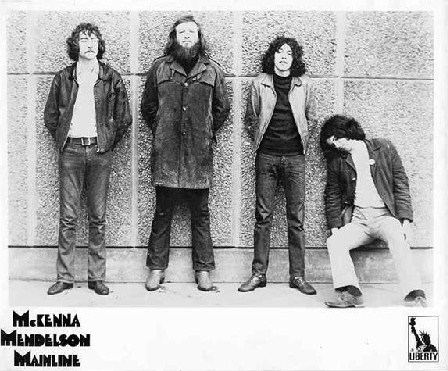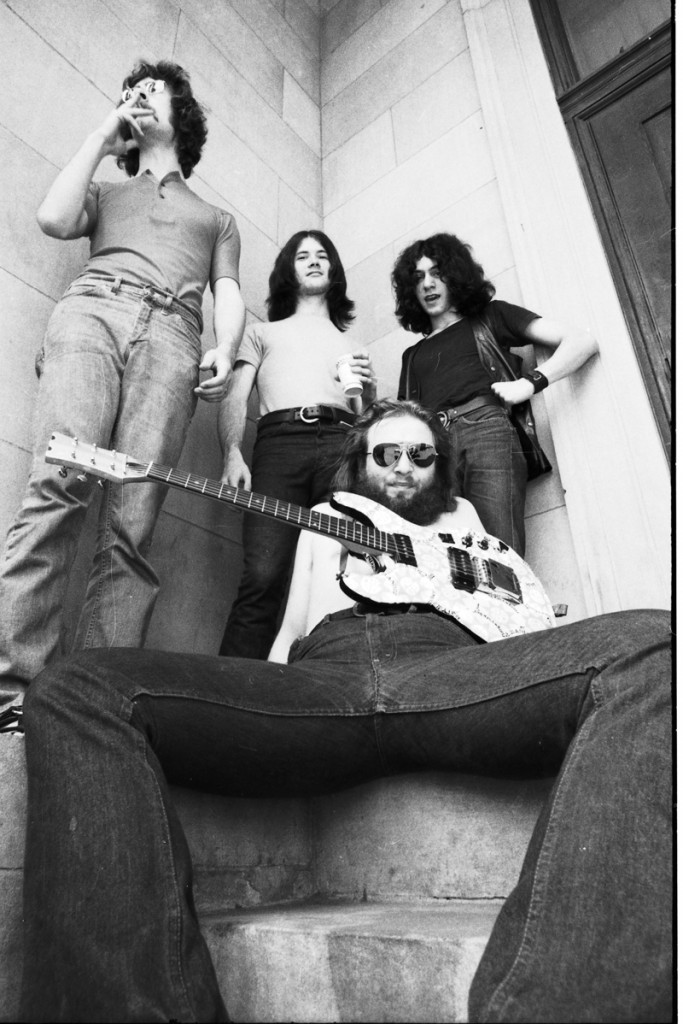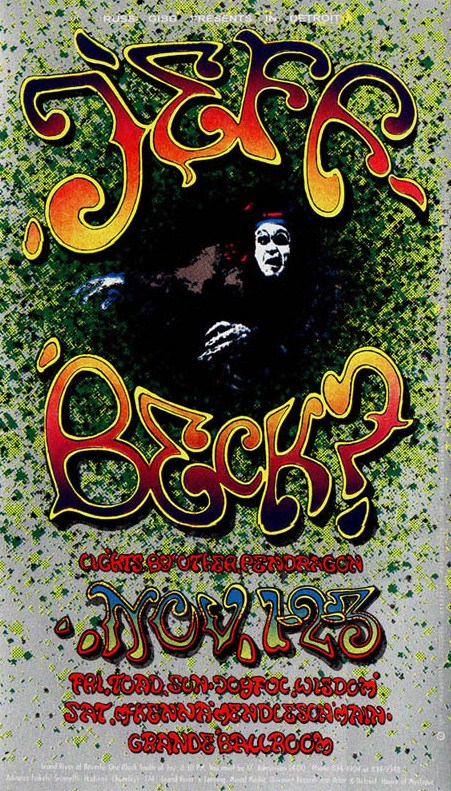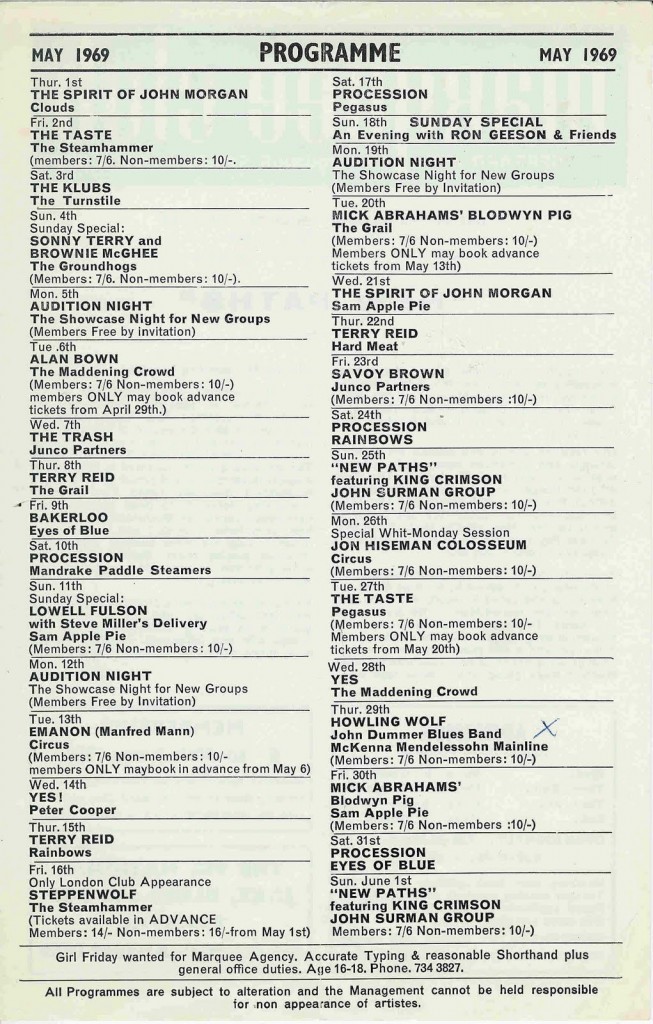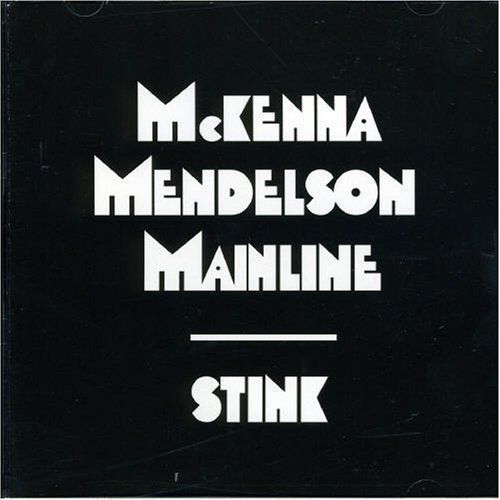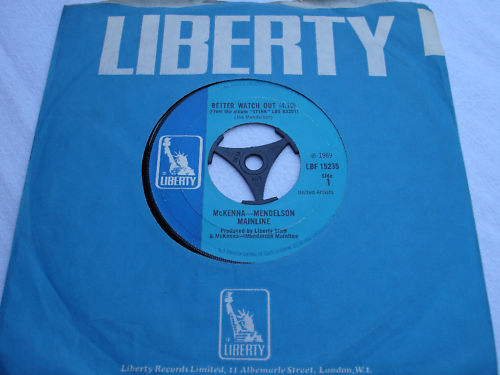Canadians Mike Harrison and Tony Nolasco came to England in December 1968 with their blues/rock band, McKenna Mendelson Mainline. They talk to Nick Warburton about the Toronto group’s record deal with Liberty Records, recording their landmark album, “Stink”, touring the UK and the band’s decision to return to Canada before its release.

McKenna Mendelson Mainline, left to right: Mike McKenna, Joe Mendelson, Tony Nolasco and Mike Harrison
I’ve read that McKenna Mendelson Mainline was formed around May 1968 after Mike McKenna placed an advert in the Toronto Star looking for ‘like-minded’ blues musicians and Joe Mendelson answered?
Tony: That’s how it started. Joe was a bit pessimistic about the idea as we learned later but not enough to not call.
Is it true Tony that you were barely 18 years old when you joined?
Tony: Barely? Is the glass half full? Yes…I was 18.
I understand Tony that you recommended Mike Harrison as a replacement for Denny Gerrard?
Tony: Yes…Mike and I met at the Devil’s Den a Yorkville club later to be renamed the In Crowd. I heard him play there with a popular local R & B band. Two green youngsters we were but we connected musically from the get go. He was a natural for the band. The moment Mike sat in with us the MMM sound became complete.
I read that you played quite a bit at the famous The Rock Pile in Toronto during this period?

McKenna Mendelson Mainline at The Rock Pile, Toronto, left to right: Mike McKenna, Mike Harrison and Tony Nolasco. Joe Mendelson (sitting with shades) (photo from http://pi.library.yorku.ca/dspace/handle/10315/5958)
Tony: It was quite the mecca in Toronto for the times….big acts and up and comers. Led Zeppelin, The Who etc. graced the stage. And of course….McKenna Mendelson Mainline!!
Mike H: Yes. The venue was centrally located in downtown Toronto and admission prices were cheap. It was a great place for us to hone our audience skills.
You also opened for Jeff Beck at the Grande Ballroom in Detroit on 2 November 1968. How did that show go down?
Tony: From the moment we played ‘Bad Women are Killing Me’ (third song in) the crowd stayed on its feet prompting a nice compliment from Beck’s lead singer Rod Stewart before they started their set.
Mike H: That was an amazing gig. We had played to a packed house at The Rock Pile in Toronto the previous evening (my 20th birthday) and had to make the five-hour trip to Detroit by road. The Grande is a large ballroom with a capacity of up to 2000, and it was jammed to the rafters. Just before we went on, our roadie Doug plugged me into Ron Wood’s Marshall bass amp and I honked like a good thing. The Jeff Beck band on that gig was quite formidable: Beck, Rod Stewart, Ron Wood, Nicky Hopkins and Mick Waller, but we acquitted ourselves pretty well. Joe Mendelson was bemused at the thunderous response of the audience, and at the end of the set I had to yell at him to get the #@*&% off the stage so we could do an encore.

Jeff Beck, Grande Ballroom, Detroit, November 1968 Poster, McKenna Mendelson Mainline supported them on Saturday 2 November (see foot)
How did you both feel about moving to England being the youngest musicians in the band?
Tony: For me, an adventure. I arrived Dec. 26th after the other members were there already. It was the first time I had ever spent Christmas away from my family and Christmas is a big deal in my family. Goes for a week. Quite a deal for a young Italian kid.
Mike H: McKenna was 22 at the time, and Mendelson 24. At 20 years old, I had the blind, arrogant confidence of the very young, so it wasn’t much of an issue for me.
Interestingly, your first gig in Europe was in the Netherlands at the Flights to Lowlands Paradise 2 concert in Utrecht. What do you remember about this gig?
Tony: We replaced Hendrix’ slot. It was said that he had sprained his ankle getting on a plane in N.Y. The gig was at a huge ‘cow palace’ type place with a dirt floor. Perfect for the ground grazing hippies of the time.
Mike H: Jimi Hendrix and the boys were supposed to be the headliners, and Mitch Mitchell had shown up at Gatwick to board the chartered DC3. Word came that Jimi was still in New York and would not be playing. As complete unknowns in the U.K., we were pretty much cold-shouldered by the other musicians, other than some hashish on the plane (but we, of course, didn’t inhale). We experienced great hospitality but incredibly awful food at someone’s home in Rotterdam. Pink Floyd’s Nick Mason came to the chartered bus door when we arrived at the concert site in Utrecht, but we had no idea who he was. Although our set was at 3:00 in the morning, it was to a packed house because we had somehow wound up with Hendrix’s time slot! The crowd’s silence when we were introduced as “MaKEEbah MENdelsin MEN-LEN!!!” morphed into deafening cheers after we played the first tune (McKenna has been known in the band as “McKeebah” to this day). On the opposite stage, the Pretty Things rudely made noise while we were trying to play; we and the audience ignored them. Later, part of the wing was knocked off the plane as we waited to board for the flight “home”. After an ad hoc repair, we flew over the Channel at what seemed to be no more than 25 feet above the water. The musician-passengers gave the pilot a round of the applause when we landed safely at Gatwick.
[tubepress video=”j8vGR167-64″]
You gigged quite extensively across England during the first six months of 1969. What sort of response did you receive from audiences?
Tony: Most of the times they went nuts…in a good way of course. There were a few duds too.
Mike H: It depended on the gig. At some we were ignored; at others, the crowd went berserk. Some gigs were simply more suitable for what we had to offer than were others.
One of your biggest gigs in England was at the Roundhouse in Chalk Farm on 27 April with White Trash, Third Ear and others.
Tony: It was a good one but not the biggest.
Mike H: I suppose that it was big in that it was a “name” gig. I was almost late for the gig, arriving no more than about a half hour before out set was to begin. Joe Mendelson was almost as furious at my lateness as he was at my nonchalance about it. We did go over well, perhaps in part because I rewarded a heckler by taking off my Fender® bass, laying it on the stage, then turning around, dropping my trousers, and mooning the fellow. The rest of the audience loved it.
You also played at the Marquee on 29 May with Howlin’ Wolf and The John Dummer Blues Band. That must have been quite a gig?

May 1969 Marquee Programme, Thursday 29th “Howling Wolf, John Dummer Blues Band, McKenna Mendelssohn Mainline” (sic) from http://jackiebadgersblog.blogspot.com/2010/04/1969-end-of-decade.html
